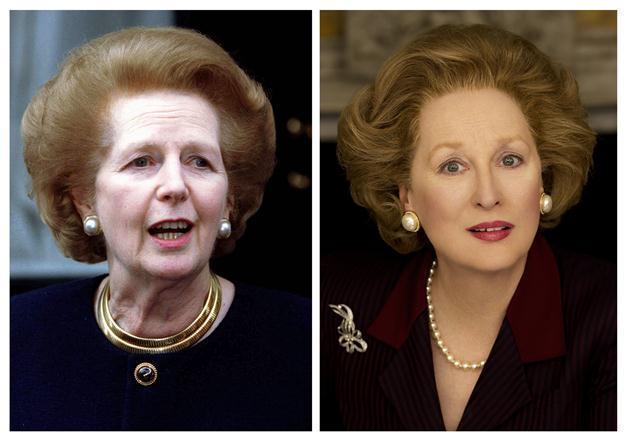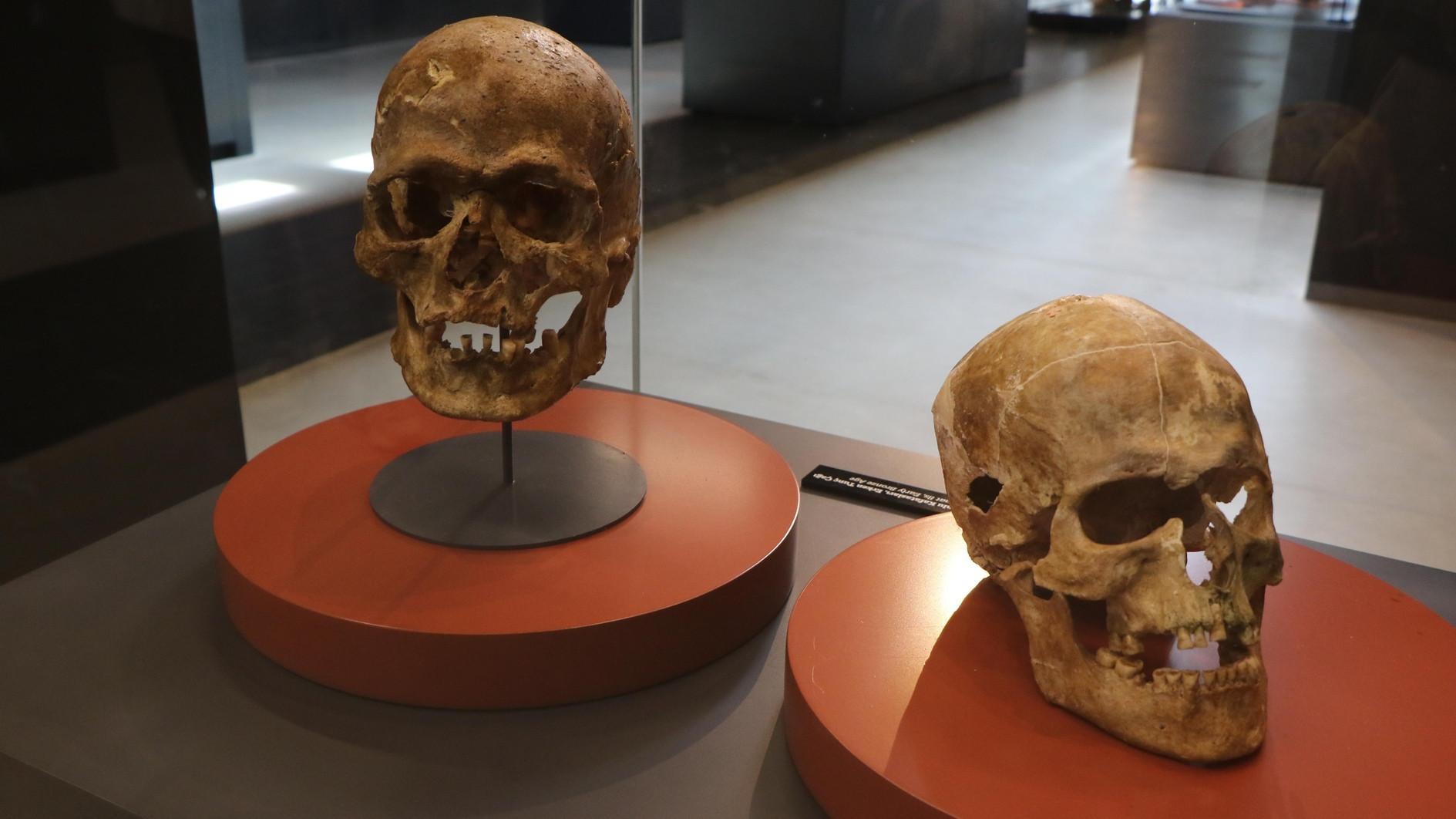'The Iron Lady' should have been delayed: British PM
LONDON - Agence France-Presse

Former Prime Minister Lady Thatcher (L) is shown in this 1997 file photo combined with a publicity photo of actress Meryl Streep portraying Thatcher in her new film "The Iron Lady" in this combination photo December 26, 2011. REUTERS Photo
Prime Minister David Cameron said Friday "The Iron Lady" should have been delayed until after Margaret Thatcher's death, as the film showing the former premier's descent into dementia opened in Britain.The biopic shows Thatcher as a frail, sometimes confused old lady -- she is now 86 and is rarely seen in public -- looking back at her career with the ghost of her late husband Denis looking on.
Cameron, in his first comment on the film, said he had been impressed by Meryl Streep's portrayal of Britain's first woman prime minister, who like him was a leader of the centre-right Conservative party.
But Cameron questioned whether it was right to make the film while Thatcher was still alive.
"It's a fantastic piece of acting by Meryl Streep but I just can't help wondering why do we have to have this film right now?" he told BBC radio.
"It is a film much more about ageing and elements of dementia rather than about an amazing prime minister, and my sort of sense was -- a great piece of acting, a really staggering piece of acting, but a film I wish they could have made another day." Streep has said she relished the "opportunity to play someone at the waning of her life... and that interested me too because there aren't very many films that pay attention to older ladies." The American actress, who is tipped to win the third Oscar of her career for her performance, was due to speak to media in Paris later Friday to promote the film, in which she is reunited with "Mamma Mia" director Phyllida Lloyd.
Critics in Britain have praised Streep's acting, but have generally given the film a cooller reception, complaining that it skims over the tumultuous politics of the time and focuses too much on Thatcher's personality.
Others have said the film dilutes Thatcher's power as a politician by attempting to portray her as a feminine icon -- when in fact she rarely included any women in her cabinet, and preferred the company of men.
The Times' reviewer Kate Muir criticised the film's "emphasis on feminism over politics" which left the Thatcher years "almost unrecognisable." Michael White, a journalist for the left-wing Guardian who covered Thatcher at the height of her power, suggested that the film should have been called "The Rusty Lady", given its unsparing portrayal of Thatcher in later life.
He, too, took issue with the attempts to portray Thatcher as something she was not, saying she was "not a satisfactory feminist icon. She could have promoted women... but didn't".
















